Ten (Film): A Review

There’s so much stuff I want to write about that I feel like something’s bottling in my chest, wanting to burst out. But I’m also feeling desultory and lazy. It’s Memorial Day weekend, and I should be lying on the beach with a sugary drink, feeling bad about my body. Not sitting in front of Caleb’s computer, eating baby carrots like a fucking anorexic, writing on this stupid fucking blog. But I went to the beach for fucking 20 minutes today. And if I were concerned with being like everyone else—which I am—the picture above would be enough proof that I did something just as good as you, with your BBQs, and your baseball games, and your beautiful fun fucking American long weekend times.
I’ve become pretty obsessed with Iran this past week. I mean, I was always kind of obsessed with Iran, because it seems so foreign and Persian. And people there make a lot of good movies that make it seem kind of glamorously oppressive. The kind of place where you could have no original ideas, but in expressing difference, come off as a real fucking rebel.
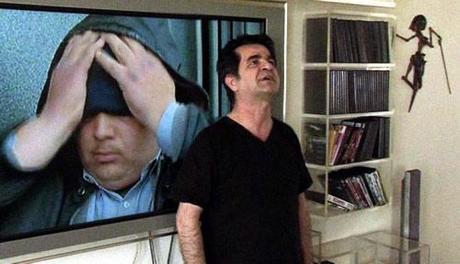
Recently, however, my fascination has become acute. First, I saw those excellent films—“A Separation” and “This Is Not a Film”—which made me very concerned with the Iranian judicial system. And then I read this piece on the Iranian elections by Laura Secor in the New Yorker. It literally made me ache with jealousy that she got to be there, observing it from the perspective of a beautiful white woman.

Like, are you kidding me? How did she even get into Iran, and why am I not this girl?
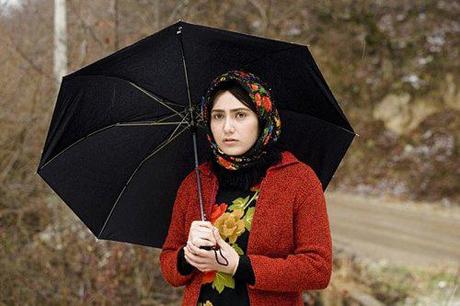
Then, the other night, sick of all television shows—actually, rather, mired in a dearth of good ones—I resorted to my Netflix queue, where I have “heady foreign films” lined up in abundance.

The first I tried was “Into Great Silence,” a three-hour German documentary about monks. I “watched” it while sitting like a crab on the floor, sorting through compacts full of cheap make-up I’ve been saving since eighth grade, birthday cards from my grandmother, and underwear so old that the elastic no longer holds up around my body. These are the types of things that I cling to in my new life. In any case, I would write a review about it, but the only thing I can say—if my ears did not fool me—is there is a lot of shuffling around that goes on in monastaries, and not a lick of dialog.
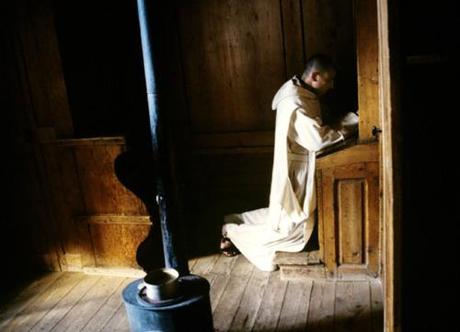
Given the precedent, I did not have high expectations for the entertainment value of “Ten,” second in the queue, which is an Iranian film directed by Abbas Kiarostami, the pioneer of the “Iranian New Wave,” if there is even such a fucking thing. It’s not that I didn’t think the movie was going to be good. It’s just that I didn’t feel like being “challenged,” and also did not think that I’d enjoy it nearly as much as “Bethenney Ever After.”
The movie, however, it was fucking fantastic. It’s composed of ten vignettes all filmed in the front seat of a woman’s car as she drives around Tehran, talking to passengers that include her son, her sister, a prostitute, and a woman she picks up at the mausoleum.
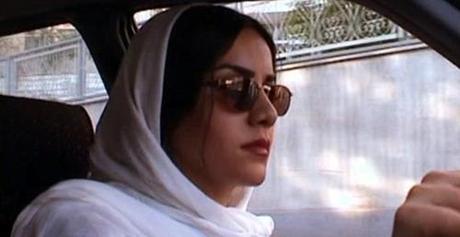
Each conversation is an essay on life as a woman in Iran. Very quickly, it is revealed—through the first screaming conversation she has with her young son—that she divorced her first husband for suffocating her with his traditional, misogynistic values, and re-married a man who is more of an equal. The son, infuriated, picks up the language and gestures of his father, and treats her like a bad mother, a poor excuse for a woman, and a girl younger than himself. It is fascinating to see how, by proxy, he becomes everything that we women fear from a stifling, controlling, and—let’s be honest—Arab husband.
In subsequent conversations, she soothes other women who have problems with men. She speaks to a jilted bride, and tells her that women give up too much control to the opposite sex. First they are our fathers, and then they are our husbands, she tells the woman. Why give up your freedom? Then, as they step out of the car in darkness, to walk to a restaurant for dinner, she makes an off-hand comment that they might get fined for walking alone, together, without the accompaniment of a man after dark.

In another conversation, with a prostitute, she discusses freedom from passionate love. The prostitute, giggling, tells her that she once loved a man who spurned her, and so she turned to sex for money as a way of deadening herself to desire. Our main character is both horrified and inspired.
(I am squeezing in this writing before friends come over for dinner. This is a terrible review.)

But I will say, as a woman, that it was shocking—and wonderful—to realize that in Iran, women’s concerns are almost identical to our own in the United States (or rather, the Western world). We love to “other” people in “oppressed” countries, with totalitarian governments, where women have no rights. But in reality, such political conditions are often just accessories to the shared “human condition” (not to sound too Orwellian or Kobayashian or whatever). Women everywhere have the same heart aches. The same problems. The same issues with desire. With ties that bind us to men. With finding balance in our lives.
After I finished “Ten,” a girl I know in New York emailed me, and said her boyfriend had just broken up with her. Would I set her up with men? Could we go out one night? I wanted to wrap a Shalwar Kameez around my body, and go pick her up in the Jeep, so that too could drive around, comforting each other, and learning more about life.
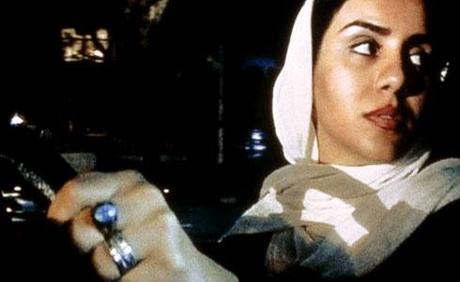
If you were to watch Girls, and then Ten, you’d see that women here have the same problems as women in Iran, although we express them by detaching ourselves from love and kindness in the same way the prostitute does in the front of the Iranian woman’s car. That’s an extremely inflammatory in that sentence. I’m not equating women in America with prostitutes, because that would be too Christian Fundamentalist.
But my point, kind of , is that I think that we often tend to essentialize other people’s problems just because they live in different worlds, or what we perceive as different worlds. In the United States, we think that we cannot relate to Iranian women. But really, if we are of the same class—the woman in “Ten” is well off, well educated, and successful—our concerns are almost identical.
Watch it. And now, I must go dine.
